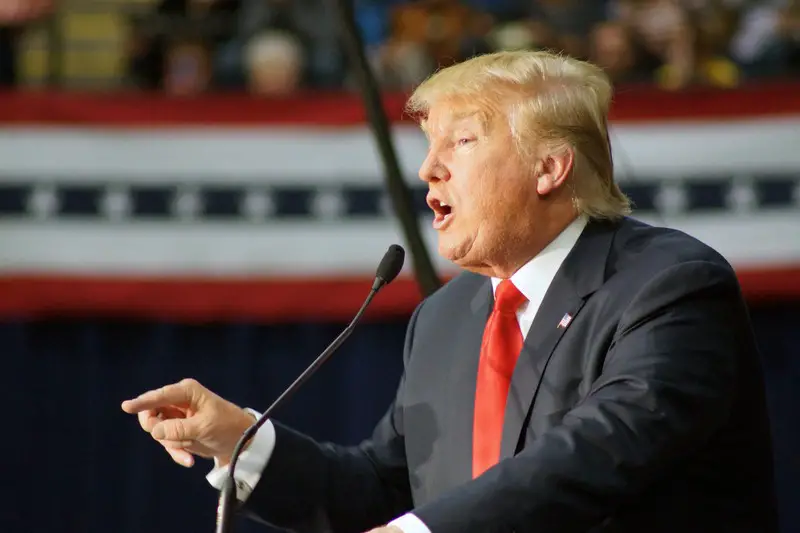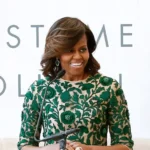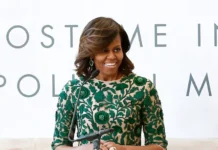President Donald Trump issued a sharp critique of New York Times journalist Maggie Haberman on Friday, March 21, asserting that she “owes” him her Pulitzer Prize following her co-authored article about tech billionaire Elon Musk allegedly obtaining sensitive military information.
The president’s remarks were in response to a New York Times piece co-authored by Haberman, which alleged that Musk, a White House advisor and head of the Department of Government Efficiency (DOGE), might be briefed on potential U.S. military actions in the event of a conflict with China. The article cited two unnamed U.S. officials as sources.
Trump turned to his Truth Social platform to criticize the newspaper, referring to it as “one of the worst and most purposely inaccurate newspapers anywhere in the World.” He accused the Times of presenting a false narrative suggesting that Musk might compromise U.S. interests by sharing sensitive information with China due to his business activities in the country.
He also targeted CNN for promoting the story, accusing the network of circulating a baseless and potentially libelous story, while also deriding their viewership figures.
Trump’s criticism escalated as he called Haberman “Maggot Hagerman,” alleging she is a dishonest reporter who fabricates sources in her reporting on him, asserting that he has not communicated with her for years.
Haberman was part of a team at The New York Times that reported on investigations into Trump and his advisors’ connections to Russia, work that earned her a Pulitzer Prize in 2018. Referring to this accolade, Trump wrote: “She lead the Russia, Russia, Russia Hoax, only to realize that she was duped and got it wrong. She owes me a totally discredited Pulitzer Prize for her bad reporting.”
The president wrapped up his post with a bold statement: “The Fake News is the ENEMY OF THE PEOPLE…And Elon is NOT BEING BRIEFED ON ANYTHING CHINA BY THE DEPARTMENT OF WAR!!!”
Musk also commented on the situation, condemning the Times report. He warned that Pentagon officials who leaked false information to the New York Times would be identified and prosecuted. He later labeled the newspaper as propaganda.
The disputed report claimed that Musk would obtain highly sensitive information regarding potential military strategies against China. Multiple sources told various news outlets that the original plan involved Musk attending a Pentagon briefing on China-related issues, although the specifics of this briefing became contentious.
Trump further explained his stance during remarks at the White House, stating to reporters, “I don’t want to show that to anybody. But certainly, you wouldn’t show it to a businessman who is helping us so much. He’s a great patriot… But I certainly wouldn’t want — you know, Elon has businesses in China, and he would be susceptible perhaps to that.”
The president’s acknowledgment of Musk’s possible conflict of interest with China marked an uncommon moment of Trump publicly setting limits on his advisor’s significant role within the administration.
Despite the controversy, Musk visited the Pentagon on Friday and met with Defense Secretary Pete Hegseth for over an hour. As he left the building, Musk described the meeting as great, as always, and reminded reporters he had visited the Pentagon previously. He declined to discuss the meeting’s content.
Hegseth stated that the meeting focused on DOGE initiatives, innovation, and efficiency measures at the Pentagon rather than war planning. He firmly denied to reporters at the White House that any war plans or Chinese war plans were discussed.
The Times article had outlined a potential briefing including detailed slides on U.S. military strategy for a conflict with China, covering threat indicators and potential Chinese targets.
Several defense officials confirmed to various news outlets that while there were plans for Musk to receive a China-related briefing, these plans changed after the Times article was published. Instead of meeting in the secure Joint Chiefs conference room known as “the tank,” Musk met with Hegseth in his office.
The situation underscores ongoing tensions between the Trump administration and major news outlets, particularly The New York Times, as well as the unique role Musk plays as both a private businessman with significant foreign business interests and a key advisor to the president with apparent access to sensitive government information.
The New York Times has upheld its reporting on the issue.











